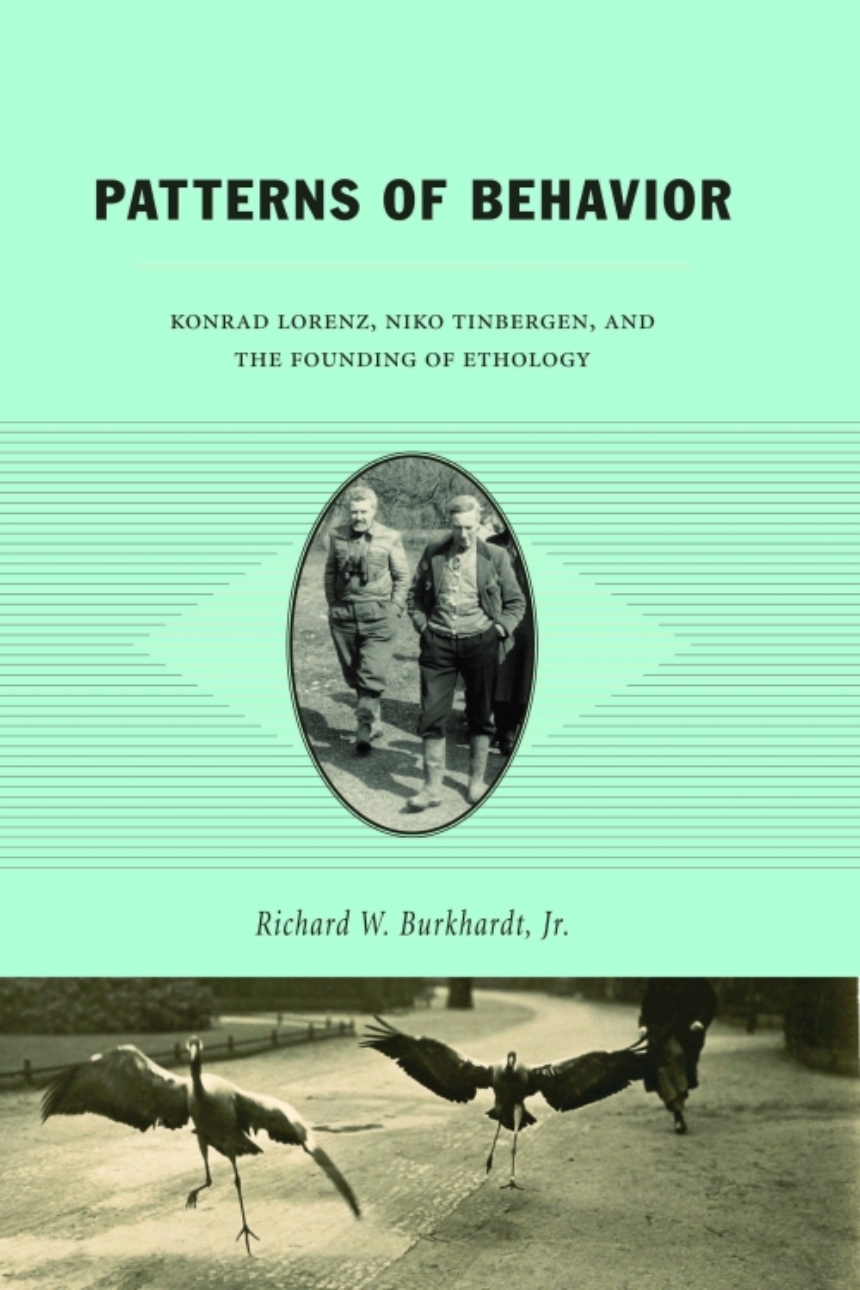Patterns of Behavior
Konrad Lorenz, Niko Tinbergen, and the Founding of Ethology
It is hard to imagine, by their very name, the life sciences not involving the study of living things, but until the twentieth century much of what was known in the field was based primarily on specimens that had long before taken their last breaths. Only in the last century has ethology—the study of animal behavior—emerged as a major field of the life sciences.
In Patterns of Behavior, Richard W. Burkhardt Jr. traces the scientific theories, practices, subjects, and settings integral to the construction of a discipline pivotal to our understanding of the diversity of life. Central to this tale are Konrad Lorenz and Niko Tinbergen, 1973 Nobel laureates whose research helped legitimize the field of ethology and bring international attention to the culture of behavioral research. Demonstrating how matters of practice, politics, and place all shaped "ethology’s ecologies," Burkhardt’s book offers a sensitive reading of the complex interplay of the field’s celebrated pioneers and a richly textured reconstruction of ethology’s transformation from a quiet backwater of natural history to the forefront of the biological sciences.
In Patterns of Behavior, Richard W. Burkhardt Jr. traces the scientific theories, practices, subjects, and settings integral to the construction of a discipline pivotal to our understanding of the diversity of life. Central to this tale are Konrad Lorenz and Niko Tinbergen, 1973 Nobel laureates whose research helped legitimize the field of ethology and bring international attention to the culture of behavioral research. Demonstrating how matters of practice, politics, and place all shaped "ethology’s ecologies," Burkhardt’s book offers a sensitive reading of the complex interplay of the field’s celebrated pioneers and a richly textured reconstruction of ethology’s transformation from a quiet backwater of natural history to the forefront of the biological sciences.
Winner of the 2006 Pfizer Awad from the History of Science Society
648 pages | 16 halftones, 15 line drawings | 6 x 9 | © 2005
Biological Sciences: Behavioral Biology
Cognitive Science: Human and Animal Cognition
History: American History, European History
Psychology: Animal Behavior, General Psychology
Reviews
Table of Contents
Acknowledgments
Introduction
Theory, Practice, and Place in the Study of Animal Behavior
1. Charles Otis Whitman, Wallace Craig, and the Biological Study of Animal Behavior in America
2. British Field Studies of Behavior: Selous, Howard, Kirkman, and Huxley
3. Konrad Lorenz and the Conceptual Foundations of Ethology
4. Niko Tinbergen and the Lorenzian Program
5. Lorenz and National Socialism
6. The Postwar Reconstruction of Ethology
7. Ethology’s New Settings
8. Attracting Attention
9. Tinbergen’s Vision for Ethology
10. Conclusion: Ethology’s Ecologies
Notes
Bibliography
Index
Introduction
Theory, Practice, and Place in the Study of Animal Behavior
1. Charles Otis Whitman, Wallace Craig, and the Biological Study of Animal Behavior in America
2. British Field Studies of Behavior: Selous, Howard, Kirkman, and Huxley
3. Konrad Lorenz and the Conceptual Foundations of Ethology
4. Niko Tinbergen and the Lorenzian Program
5. Lorenz and National Socialism
6. The Postwar Reconstruction of Ethology
7. Ethology’s New Settings
8. Attracting Attention
9. Tinbergen’s Vision for Ethology
10. Conclusion: Ethology’s Ecologies
Notes
Bibliography
Index
